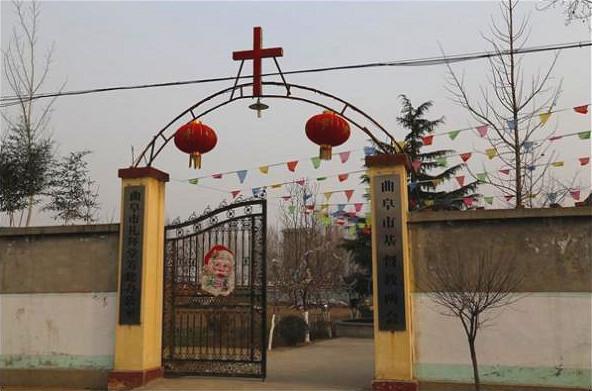On January 21, 2016, two Committee Members of Shandong CPPCC published a co-signed article calling to ban churches in Qufu, the ancient hometown of Confucius. The article states that a church is quietly being built in a place, 3 kilometers southeast of Kongmiao (Temple of Confucius), Qufu, Shandong. A local reveals that "the bungalow church has been completed for about 3 years. After the Spring Festival a higher and bigger church will be built on the bungalow."
Resist foreign religions
The two authors hold the view that as the hometown of Confucius and original place of Confucianism, Qufu is the holy city of the Chinese people; if it suffers damage, national sentiment will burst out like a tsunami, even the history may be rewritten. They ask if Chinese should have sovereignty over culture, values and national cultural wealth as a nation has sovereignty over territorial sea, territory and airspace.
On the issue of building a new church, they request that if it is possible to ask Christians to choose another place to reconstruct it according to the principle of cultural sovereignty, which avoids questioning the damage on "national cultural wealth" and reduces the suspect that Christians capture the source of the Chinese cultural religion.
This is not a new dispute on building churches in Qufu. Early in December, 2010, ten Confucian scholars including Guo Qiyong (Wuhan University), Zhang Xianglong, Jiang Qing(folk Confucian scholar), Lin Anwu(Taiwan Normal University), Yan Binggang (Shandong University) required the authority to "respect the Chinese cultural, holy land, and stop constructing Church" when Qufu Christians was going to construct a Gothic church three kilometers away from Kongmiao.
The hometown of ancient Chinese philosopher is not a world of Confucianism
Yang Chunmei, scholar of History and Culture College of Qufu Normal University, points out several important mistakes in the co-signed letter and states that Qufu is not a world of Confucianism, reported by The Paper news.
Yang writes, "Doctor Yang Li who wrote a report on the 2010 Qufu Church Event once described what she saw: 'The makeshift church can accommodate about 800 people, but in my eyes, actually it will be very crowded for 800 to attend services. It is a simple wooden historical building. If there is no cross on the house top, it is hard to be recognized as a church.' On the New Year of 2011, after investigating the simple church with my colleagues I can testify what she said is true. The open letter knows little about the basic information of the church. Protesting angrily is reckless and ridiculous."
Currently the issue arouses the attention of other scholars and Christian pastors.
Separation of religion and state
Yang Peng, cultural scholar and visiting scholar of Harvard University, holds that the constitution allows freedom of religions, no exception for Qufu. He thinks there should be separation of religion and state, and the government can't intervene the competence of religions. Confucians should try to persuade citizens and win their heart instead of relying on the government and trapping it in illegal state. It is wrong to politicize personal religious culture and combine religions with state, surpassing the rules of law no matter what the social positions of individuals are.
One pastor, Rev. Wu Bing of Dalian CCC&TSPM, commended that this article speaks out all his voice.
- Translated by Karen Luo












